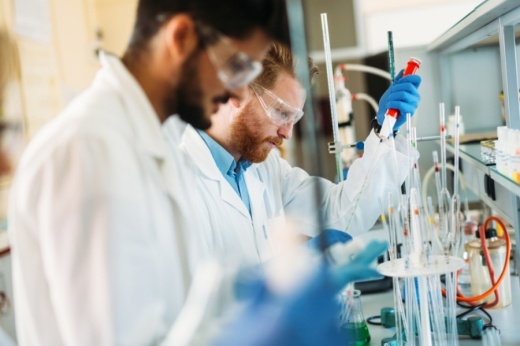The news came a day after the university announced it is offering temporary housing for Texas Medical Center hospital personnel at its Wiess and Hanszen residential colleges.
Projects in the fields of biomedicine, engineering, social sciences, humanities, and others are eligible to receive financial support from what is intended to be a $1 million research fund. So far, Rice University has allocated $500,000 towards the fund, and is looking to raise an equal amount from donors to achieve its $1 million goal. Federal funding is also expected to underwrite many COVID-19-related research efforts.
“We cannot wait for the traditional ways of getting research funding from the federal government,” said Yousif Shamoo, vice provost for research and a professor of biosciences in the news release. “Unfortunately, this will not be the last major pandemic of this century, so we must learn from this and better prepare for the future.”
Faculty will have access to supplies and other resources immediately by research groups, and the fund is designed to develop partnerships with the city of Houston and the Texas Medical Center.
The university will also soon house hospital personnel at Wiess and Hanszen, as the two sit directly across the medical center on Main Street, according to the university in its announcement, though no specific date has been given. In the meantime, 50 students and resident associates in the two colleges will move to other housing across campus, while remaining appropriately distanced from the other undergraduates who still remain at Rice.
Oversight of the fund will come from a faculty committee along with the Office of Research.
The Office of Research has already approved more than a dozen new research projects whose work is dedicated entirely to the COVID-19 response, according to the news release. These include teams from the George R. Brown School of Engineering, Wiess School of Natural Sciences, School of Humanities and School of Social Sciences.
The projects include:
- The Brown School of Engineering has refined an automated bag valve mask ventilator created by a student team last year, which has been made an open-source project, with detailed plans available to both the maker community and manufacturers around the globe. It costs less than $300 to build.
- The Department of Bioengineering has organized a BIOE+COVID-19 working group.
- The Data Science Initiative has offered expertise in in data science and analytics in the effort to combat COVID-19.
- The Kinder Institute for Urban Research is working on a study on COVID-19’s impact on cities, expanding its “Disaster Recovery Tracker” to monitor the efficacy of public and philanthropic investments in response to the outbreak, and more.





